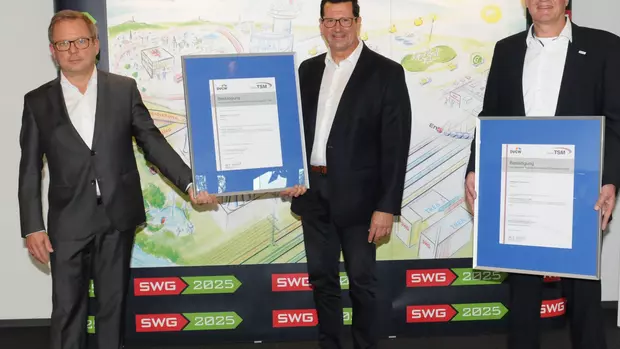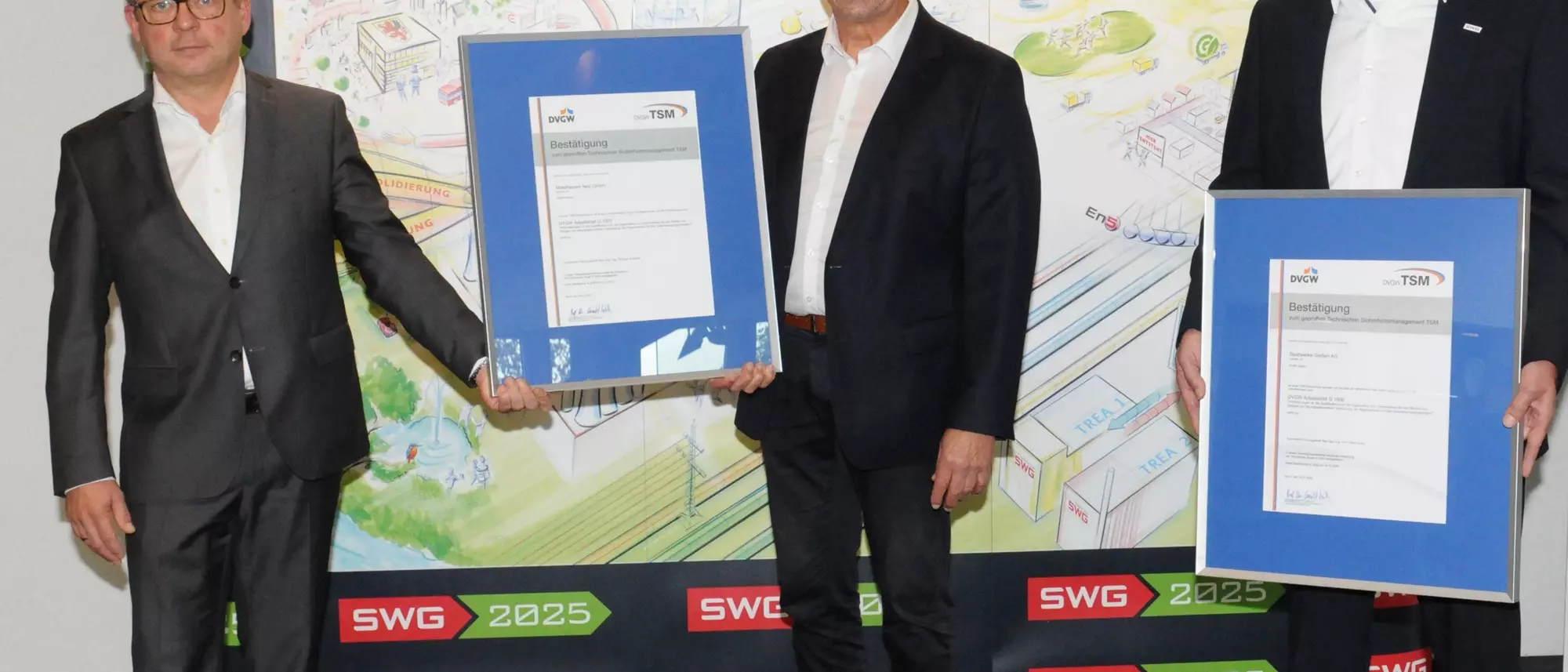
Stadtwerke Gießen and its subsidiary Mittelhessen Netz have received certification for technical safety management in the electricity and gas sectors. The auditors were highly satisfied.
Companies that transport electricity or gas in Germany and therefore work on the necessary grids are subject to strict controls. The energy regulator regularly checks their suitability - more precisely, the processes and documentation. However, these checks are not necessary if the companies concerned, such as Stadtwerke Gießen (SWG) and its subsidiary Mittelhessen Netz (MIT.N), voluntarily introduce a technical safety management system and allow themselves to be audited accordingly. "Such an inspection is a kind of driving licence for energy suppliers," says Heinz Flick, Managing Director of the German Technical and Scientific Association for Gas and Water (DVGW) - Rhineland-Palatinate regional group. His organisation controlled the gas sector at both SWG and MIT.N. The Association for Electrical, Electronic & Information Technologies (VDE) in turn sent experts in the field of electricity. The reason for the different auditors: TSM certification always relates to one company and one division. For this reason, there are now four new certificates in Lahnstrasse - one each for electricity and gas, at SWG and MIT.N. The result of the audit was already finalised at the end of 2019. However, due to the outbreak of the Covid-19 pandemic, the documents have only now been officially handed over.
Already the second round
Five years ago, SWG and MIT.N had their compliance with all technical regulations confirmed in detail for the first time following an in-depth audit. The first recertification was due at the end of 2019. "I was certain at all times that we would pass the audit without any defects," says Matthias Funk, Chief Technical Officer at SWG. And that's exactly how it turned out. The auditors only made one or two recommendations. "We are very grateful for this," Matthias Funk continues, "because this advice helps us to become even better." In fact, SWG has already adopted one suggestion: If a fitter was sent to an on-call assignment by the grid control centre, he used to drive off and complete the job. "The inspector recommended that the technician report his arrival at the site. And that's exactly what we introduced," adds Rüdiger Schwarz, Managing Director of MIT.N. In this way, SWG was able to make its work safer with little effort. This is because the colleagues in the network control centre now notice immediately if something happens to the technician on his way.
"It is precisely because of this useful advice that the tests for TSM certification are in our own best interests," explains Matthias Funk. But of course it is also nice to know that, objectively speaking, everything is going as planned. In fact, neither SWG nor MIT.N prepare for such audits. "We attach great importance to compliance with the various technical regulations. And because our employees adhere to them, such an inspection does involve a certain amount of manpower, but is basically routine for us," adds Rüdiger Schwarz. It is therefore hardly surprising that SWG was able to surprise the auditors in a positive way. "Our construction site-related risk assessment was really well received," recalls the MIT.N Managing Director.
Now valid for six years
The current certification is valid for the next six years. This means that the next major recertification is due at the end of 2025. However, after three years, i.e. in 2022, SWG and MIT.N will have to undergo a less extensive interim audit. "We are relaxed about all of this," explains Matthias Funk. "Because we can rely on our experienced team. The employees know exactly what is important and always behave in accordance with the strict rules in our industry."

